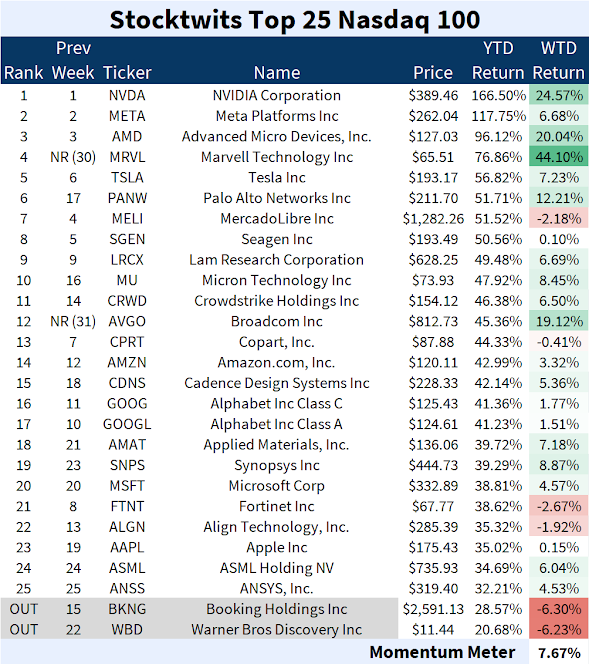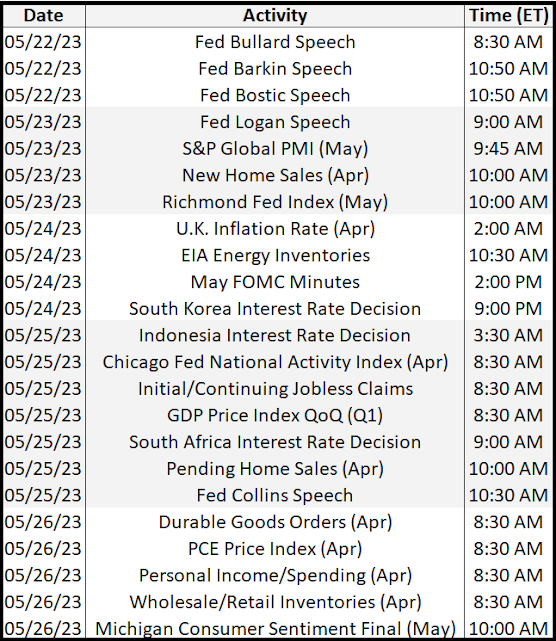Side to Side
The calm before… Considering the backdrop of a potentially havoc-wreaking US government default, stock markets are remarkably quiet . Indeed, US stocks have been calm all year, swaying only gently from side-to-side on any given day. The sharpest drop in the flagship S&P 500 Index came on February 21st, when the market fell 2% . Last year, on the other hand, a 2% drop would have been the 24th worst day , and of course it’s absolutely nothing compared to the ~8% , ~10% and even 12% falls that we saw in 2020, during the early days of the pandemic. The Wall Street Journal blames the robots for the calm, citing a rise in systematic (algorithm-driven) investors, which have pushed markets higher, as discretionary investors sit on the sidelines. Reasons to (not) worry In addition to the debt ceiling, the current crop of top concerns includes ongoing geopolitical conflicts, still-high inflation, how the impac...
.png)



.png)